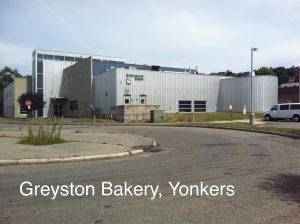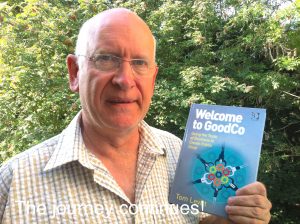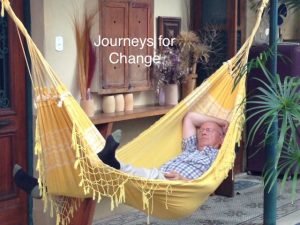On 18 June 2015 Tom was a guest speaker at an event promoting and celebrating Journeys for Change. The deal was: 5 minutes only, lots of colour. Here’s his speech…
Journeys for Change lets you see things for yourself: not all external advice is well informed – like this piece, here in London:
 On a ‘Journey’ we’re introduced to innovation, initiative, insight and intelligence.
On a ‘Journey’ we’re introduced to innovation, initiative, insight and intelligence.
On my first ‘Journey’, India 2011, I witnessed a whole community economy, in Ahmedabad, based on the recycling of profit;
– on community and cooperative ownership;
– on using the tools of business to create social change;
– on partnerships that were previously unimaginable.
Truly Asian values: emancip-Asian! (ation), educ-Asian! (ation), collabor-Asian! (ation).
 This photo is of a massive laundry in Mumbai.
This photo is of a massive laundry in Mumbai.
I was on a journey myself; utilising my career in politics, in community development, in the voluntary sector, and in poetry –
to develop new ideas, new ways of doing things, of delivering services and empowering communities;
ideas as relevant in Mumbai and Sao Paulo as they are for Britain today.
Because I never forget why I entered public life as a student activist, a union representative, a councillor and then MP.
 It was for these people; this is Sao Paulo, on my 2014 Journey; people living in favelas, slums. People lacking wealth, opportunity, control over their own lives, both individually and collectively. (This particular community featured in a Dulux advert during the World Cup!)
It was for these people; this is Sao Paulo, on my 2014 Journey; people living in favelas, slums. People lacking wealth, opportunity, control over their own lives, both individually and collectively. (This particular community featured in a Dulux advert during the World Cup!)
However well-meaning, competent or well-endowed a government may be, an over-centralised state – and this is one of the lessons I have learned – is not sustainable.
The purpose of achieving power in politics must be – to give it away.
This is a Brazilian slum. When I was an MP I didn’t represent slums in communities like this, where hundreds are murdered every year, yet where social enterprise (by a wide definition) is a potent weapon against despair.
But I did represent an estate built on a Derbyshire greenfield site in 1960 to house a Manchester slum clearance population.
It was designed to make slum people feel at home: as a slum. Isolated. Jobless. Powerless. Inadequately housed. Lacking transport links. Dependant on benefits.
Lacking places to acquire skills and to use those skills to do what they can for their families.
Lacking opportunity.
Joy.
And justice.
 Here’s a community that did something about it. This austere and uninspiring building is home to a miracle: using the tools of business to create public good.
Here’s a community that did something about it. This austere and uninspiring building is home to a miracle: using the tools of business to create public good.
This is Greyston bakery in Yonkers, New York, part of a ‘solo’ Journey for Change I undertook in 2012!
They employ over 70 on the shop floor. You need special qualifications to work there: because they only recruit: ex-convicts… and ex-addicts.
People with modest ambition – but no hope. And they develop both.
30 years ago a Jewish Buddhist and six ex-cons started making biscuits together. Today Greyston are major suppliers to that wonderful social business, Ben & Jerry’s.
Their commercial operation has put $50 million into the Yonkers community in low cost housing, services for people with AIDS, children’s nurseries, public shared spaces.
Using the tools of business to create public good.
So this is where my journey has taken me: ‘Welcome to GoodCo’, my second book. 
It says this: man’s greatest challenges are climate change, poverty, hunger and resource depletion.
Of the planet’s 100 biggest economies only 40 are countries, 60 are corporates.
If corporates are not part of the world’s solutions then they are part of our problems.
And our smallest voluntary organisations say they need money: they do.
But more than that, they need skills. Capacity. Social capital. How can they develop those? Where can they get them from?
From Business. From Citizen Companies.
From corporates, from SMEs with whom they share those communities. But they can only do that when people step out of their silos: business people and workers here, community people here. Workers nine to five, families at weekends, volunteers when they can fit it in.
Using surplus skills, surplus goods, the tools, the investment potential that exists in business and lending them to communities; businesses creating a social return on investment, enhancing employee skills and engagement, becoming truly Citizen Companies.
Using the Tools of Business to Create Public Good. Like it says on the book!
Journey for Change works you hard; but it’s not all hard work! 
(Thank you, Richard! This is Brazil again).
Look at it: the word ‘journey’ starts and ends with ‘joy’! And what’s in the middle? ‘U R’.
N E way…
Joy – from seeing what works.
Joy from witnessing the empowerment of communities and individuals motivated by doing good in a sustainable way, which enlightens and engages those who were hitherto isolated and without hope.
Joy and incredulity that the stuff we’ve always taken for granted need not be so. That there’s an alternative and it’s here, in our hearts, our heads – and our workplaces.
It’s not yet time for me to put my feet up; but I hope that if you’ve not yet been on a Journey, both to see and experience change, then today will be a step along that road.
ends